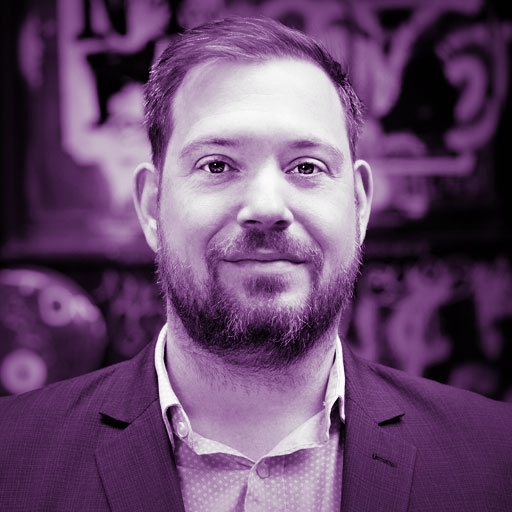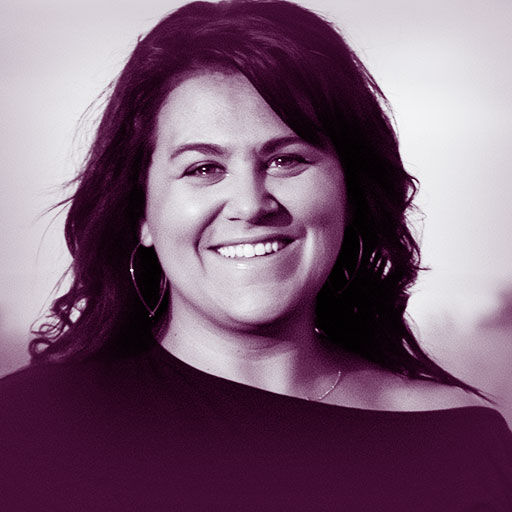Episode 152: The Infertility Crisis in Canada
In today’s episode our guest, Carolynn Dubé, shares her family building journey with a few universal themes and emotions that many of our guests and this community has shared – the frustration, disappointment, sadness, and moments of hope. Carolynn also opens the question of, is Canada doing enough to support those struggling with infertility?
Join us as Carolynn shares her experience with male factor infertility, multiple rounds of IVF, the emotional and financial toll this journey took on her and her husband, and how she’s on a mission to change access to family building care in Canada with Fertility Matters Canada.
Guest: Carolynn Dubé, Executive Director, Fertility Matters Canada
Host: Dan Bulger, Progyny
For more information, visit Progyny’s Podcast page and Progyny’s Education page for more resources. Be sure to follow us on Instagram, @ThisisInfertilityPodcast and use the #ThisisInfertility. Have a question, comment, or want to share your story? Email us at thisisinfertility@progyny.com.
Here are some highlights from this episode:
Male Infertility Happens Too
00:20 – 07:26
Dan Bulger: Carolynn Dubé is the Executive Director of Fertility Matters Canada, or FMC. Fertility Matters Canada is the national organization that empowers Canadians to help reach their reproductive health goals by providing support awareness, information, and education, while promoting equal access to fertility treatments. But if you aren’t Canadian, there’s no reason to skip this story. Carolynn has experienced infertility and fertility treatment.
Carolynn Dubé: I got married, bought house, all the things in the order that society says you should do it, we did not anticipate having challenges, we didn’t have any reason to think that, you know, conceiving was going to be an issue for us. So, after several months of trying, unsuccessfully, I just felt something wasn’t right. So, I encouraged my husband, he was in the military, to see a physician. I also knew that it was important to have both the male and the female in a relationship tested. He had the results of his analysis back and it showed that we in fact, had male infertility. And so, we knew that that was something we were going to have to look into.
Dan Bulger: So male infertility is considerably more common than many think. Infertility is not a woman’s issue. It’s not only brought about by the age of a woman’s eggs. For most to experience male infertility, the issue can be solved with IVF. The biggest hurdle for many is the cost. IVF can be very expensive. We’re not dealing with the U.S. healthcare system, we’re dealing with the Canadian healthcare system. And from all I’ve ever heard, the Canadian healthcare system is free for people to access, everyone has coverage, and so access is considerably greater.
Carolynn Dubé: So, for the majority of Canadian provinces, fertility care is not covered under our provincial health care plans.
IVF — It’s Not That Simple
08:12 – 15:57
Carolynn Dubé: When you’re in your early 30s, and you know, you’ve got a mortgage and car payments, and you’re just starting your careers, and then you get a sticker shock of, you know, this treatment is going to cost sort of between 10 and 15, or $20,000.
And it really caused friction in our relationship, that’s for sure. In fact, there were several times my husband sat down with me and said, if you would like to get a divorce, maybe that’s the route to take because you signed up for this wanting children, that was what we had signed up for and I can’t give that to you. And so maybe divorce is something we need to consider so that you can find a partner who can give you a child. And of course, I wasn’t, that wasn’t what I was interested in.
Our initial appointment was in September. I started my medications in October, and had an egg retrieval by the end of November, we transferred an embryo. And I thought for sure, two weeks after the transfer, I thought, yes, this worked, I’m pregnant, this is great. And off, we go on our merry way. And so, when we got our call, the day we did a blood test at the clinic they said, “Carolynn Dubé, I’m really sorry, it didn’t work.” It’s not just as simple as go have IVF, you’ll get pregnant, you’re going to have your baby. This is months and years, and transfers and fails and miscarriages later that, that patients no matter if they’re doing this on their own, or if they’re doing this with a partner, are going through this sort of grief, month after month after month.
Dan Bulger: A transfer failure doesn’t necessarily mean the entire cycle is a failure. If the egg retrieval resulted in many eggs, and a few of those eggs fertilized, developed and were deemed viable embryos, well, then you can get ready for another transfer without having to do another egg retrieval.
Carolynn Dubé: Several months later, we just jumped right back on the horse and did a frozen embryo transfer. And in retrospect, I wish I had been actually guided down that path in the first place. I felt so much better as a patient going through a frozen embryo transfer. You know, I hadn’t gone through an egg retrieval and my body felt better and got pregnant with my son who is now eight and a half. So you know, we did have a happy ending there.
Dan Bulger: Eventually they decided they were ready to transfer another embryo.
Carolynn Dubé: I did try to do the embryo transfers with the remaining embryos which failed again completely. But thankfully, we were living in a province at that point that had infertility coverage wasn’t extensive, but it did help ease some of the burdens. And my husband’s coverage covered 100% of the drugs, which was a significant piece of the puzzle. So, we went to our local volunteer clinic, we did another fresh IVF cycle, and retrieved and froze all of our embryos, this time, which was a smart move, I think on our part. And that’s when I got pregnant with my twins.
Coverage in Canada
16:19 – 21:03
Carolynn Dubé: I was ready to go back to work when my son was just over a year old. This job in the fertility space became available, and I was fortunate enough to be able to take on this role. And so, what was different between my first and second time, kind of going through this was I was obviously much more well educated. I worked with fertility professionals from across Canada who were able to support me and provide advice and guidance, which was incredible.
We provide information and education to all Canadians who need information for about their reproductive health and fertility journeys. We have provide online support groups, we connect with clinics. And we connect patients with resources to help them make informed decisions about their fertility options. We also advocate for better fertility, coverage or access to fertility care. So, we advocate at the provincial level for provinces to provide public funding.
Dan Bulger: Now we talked about how similar the covered landscape unfortunately is in Canada and the U.S. and of course the treatment options available mainly IUI and IVF are the same as well. But there is a part of this that is very different in Canada than it is in the U.S.
Carolynn Dubé: If we look at surrogacy and egg and sperm donation in Canada, that is quite different than what happens in the U.S. In Canada, it is a federal crime to pay a surrogate or an egg and sperm donor to so it’s illegal to pay a surrogate to carry the baby for you. It is also illegal to pay someone for their sperm or OVA, it has to be altruistic. In Canada, we actually only have one sperm bank, and we import about 90% or 95% of our sperm from U.S. or international donor banks, where interestingly enough the donors have been paid for their samples or for their donation.
My hope is that everyone who has is struggling or needs to access fertility care will be able to take a baby home at the end of the day. I know that that will not be the reality for everybody but connect with people, reach out to your resources, find that safe space and be kind to yourself.

Host
Dan has been in the healthcare industry for the past ten plus years as a multimedia content producer. Better known as ‘Video Dan’ he has interviewed numerous doctors, patients and other experts in the world of fertility. He’s also the producer for this podcast, This is Infertility and the producer behind the Progyny YouTube Channel which features interviews with dozens of the nation’s leading fertility specialists. On a personal note Dan’s parents started fostering kids when he was four years old, and he considers himself a proud older brother to over 100 foster children.

Guest
Carolynn joined Fertility Matters Canada as the Executive Director in February 2015. A vocal advocate for funding of publicly funded fertility treatments, she now has three children conceived through ART. Carolynn believes in equal access and support for all those who need to build their families using alternative methods. Carolynn is a founding leader of East Coast Miracles. She holds a BSc in Human Kinetics from St. Francis Xavier University and MSc in Exercise and Sport Science from the University of New Brunswick.
Carolynn is a true believer in the in the importance of education, support and continued advocacy for the highly effective medical treatment of assisted reproductive technology (ART). She looks forward to continuing to support the 1 in 6 Canadians who are struggling to build their families.
Music From This Episode:
Artist: Loyalty Freak Music
Track: Summer Pride
URL: https://freemusicarchive.org/
Artist: Kai Engel
Track: Holiday Gift
URL: https://freemusicarchive.org/
Artist: Andy G Cohen
Track: Space Full
URL: https://freemusicarchive.org/



